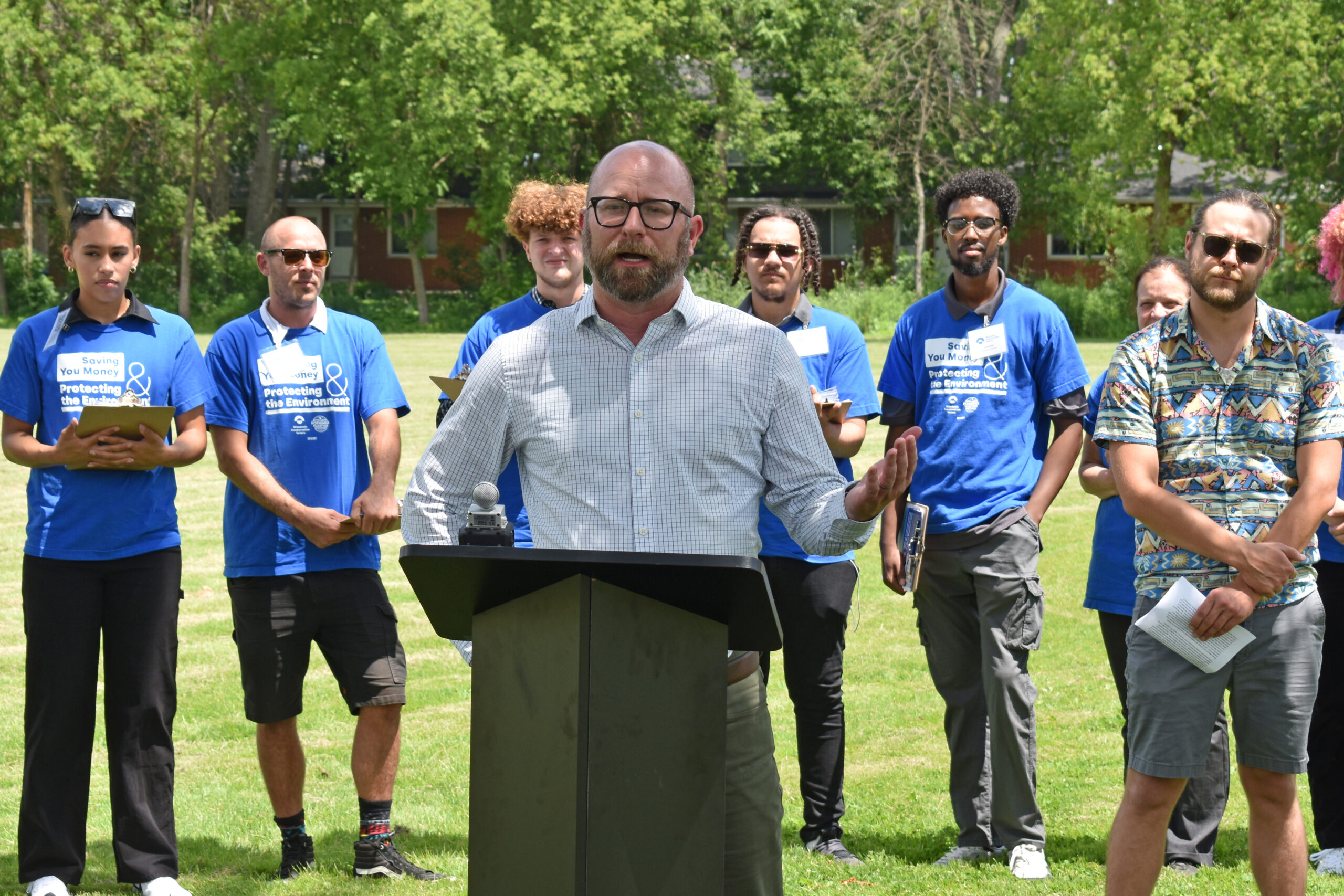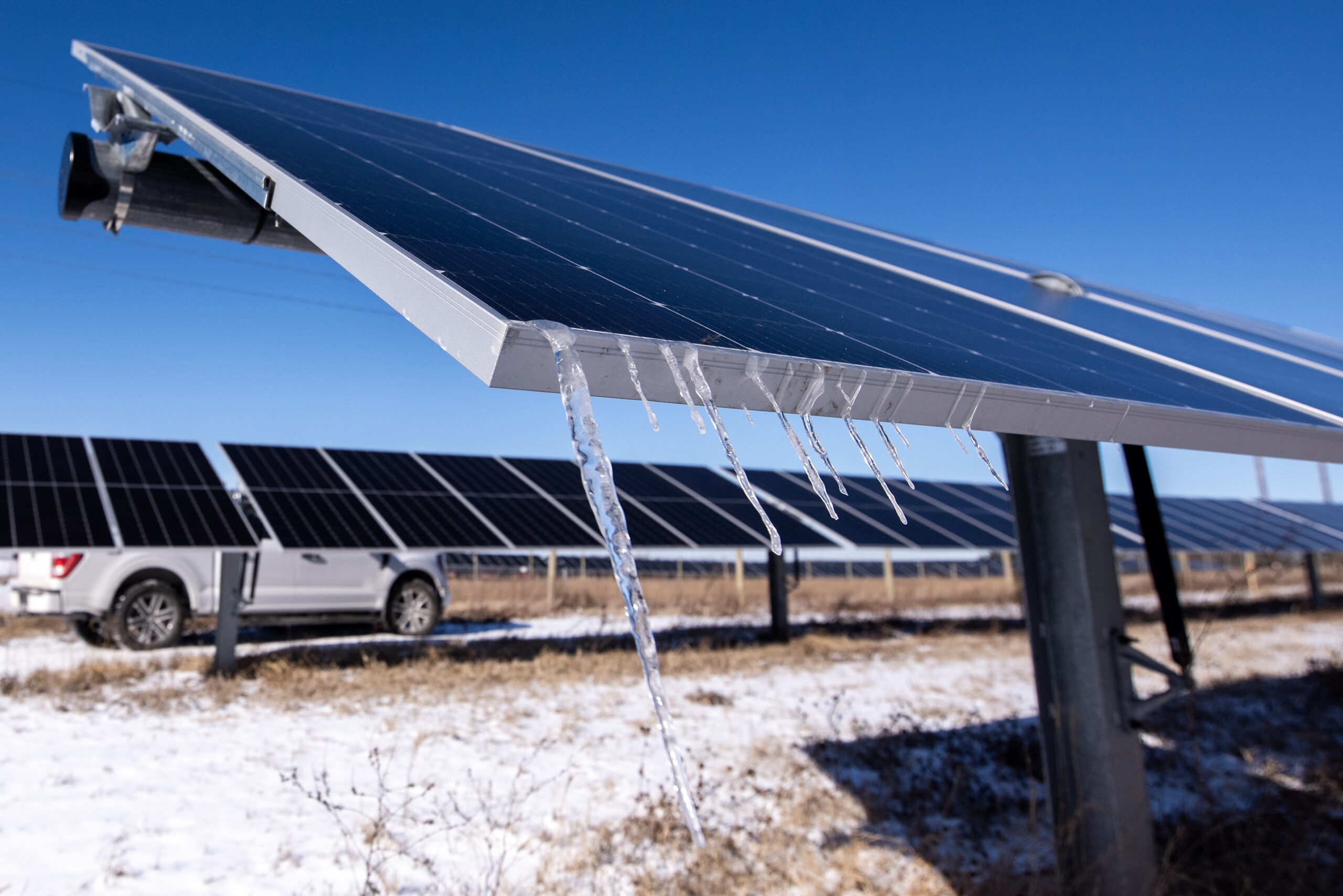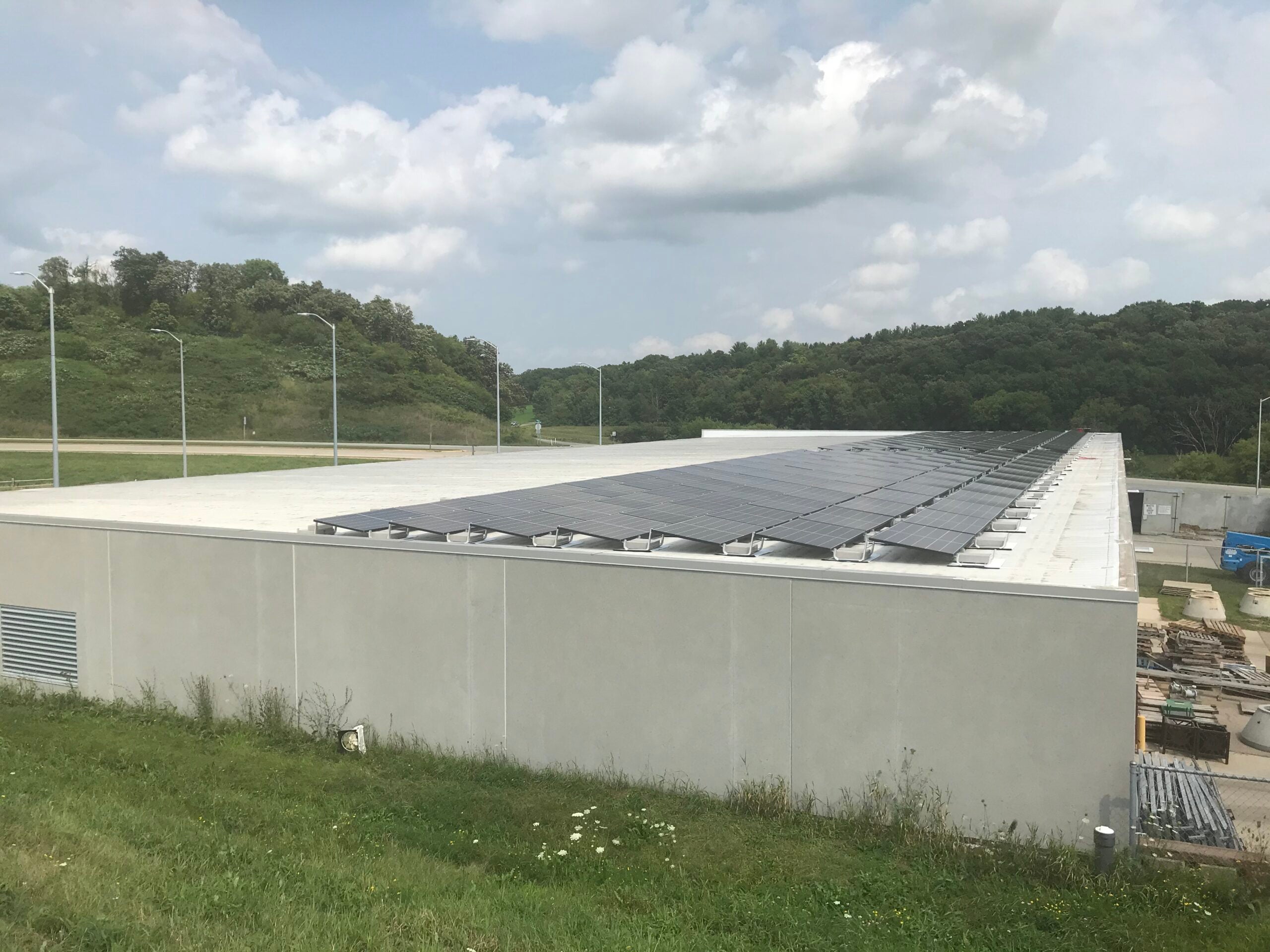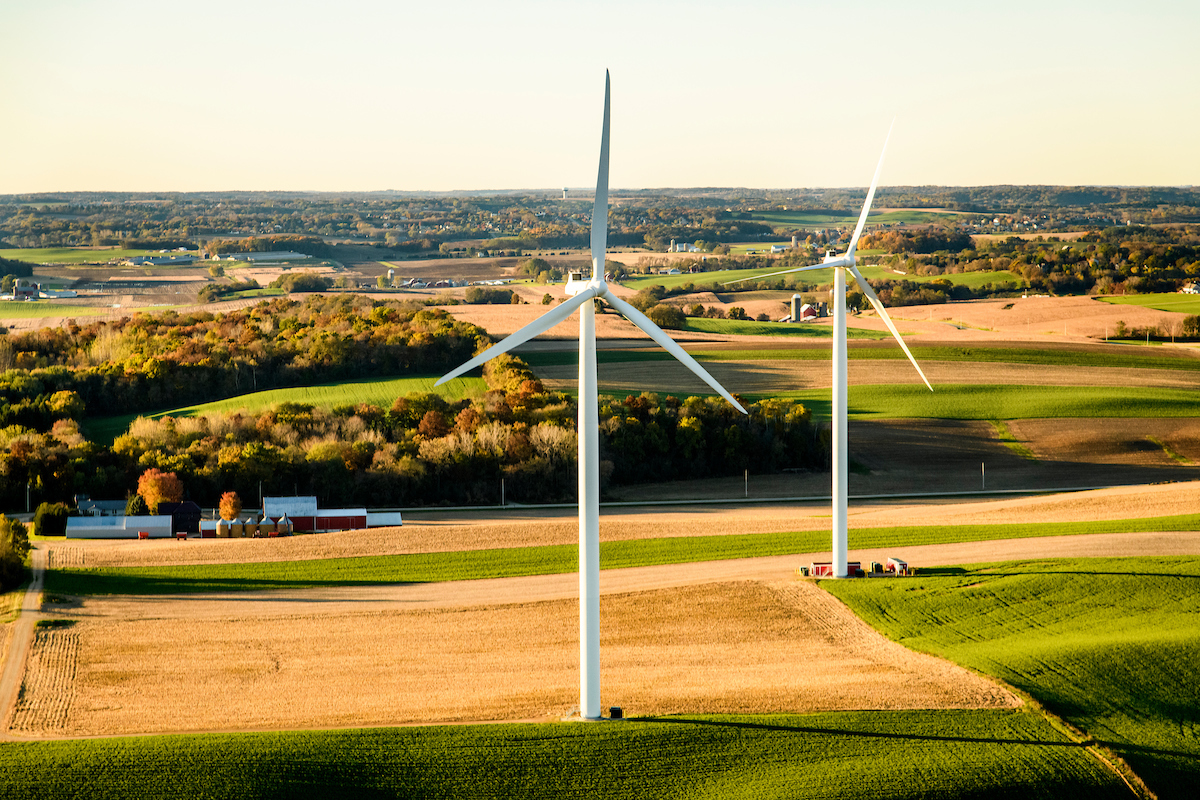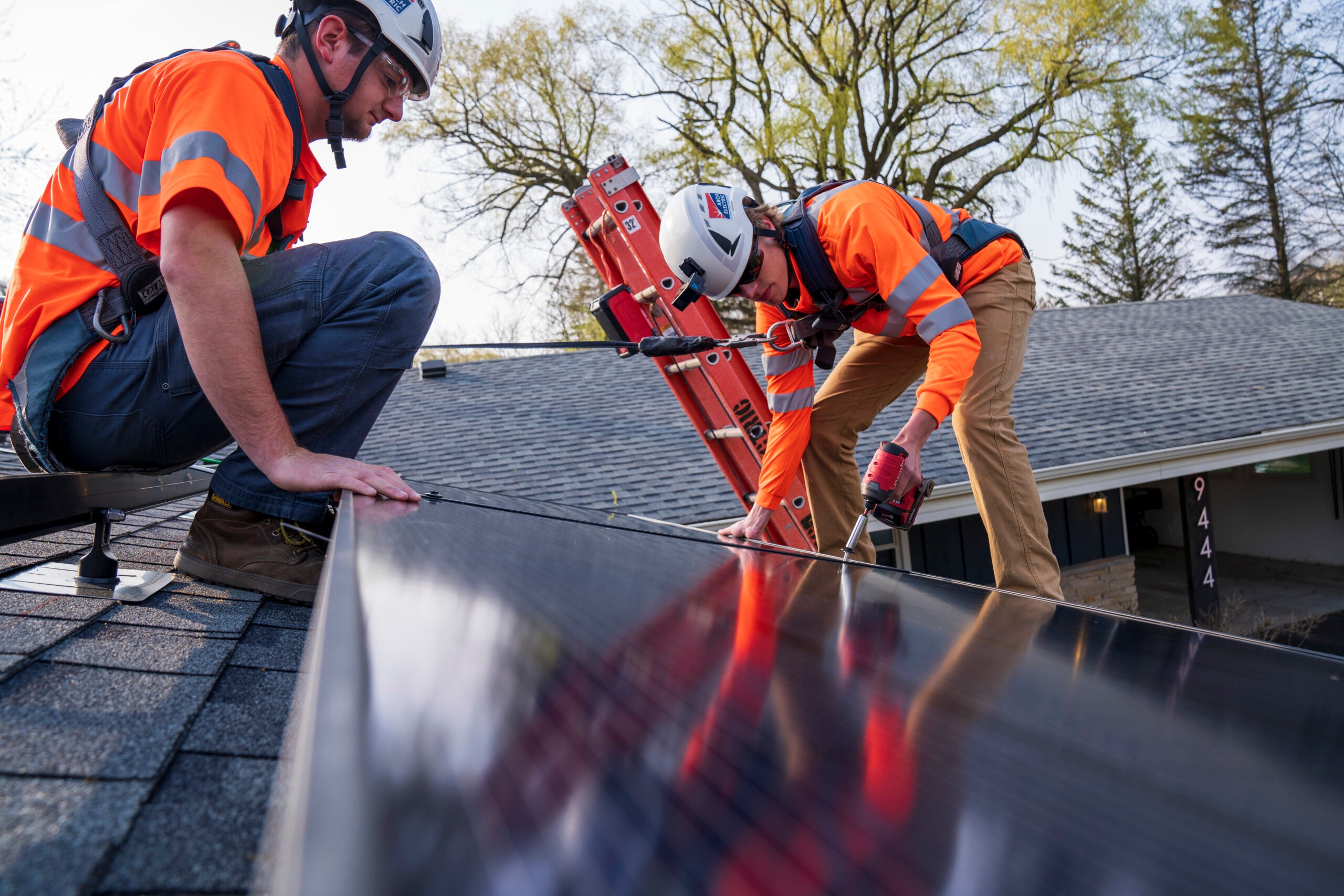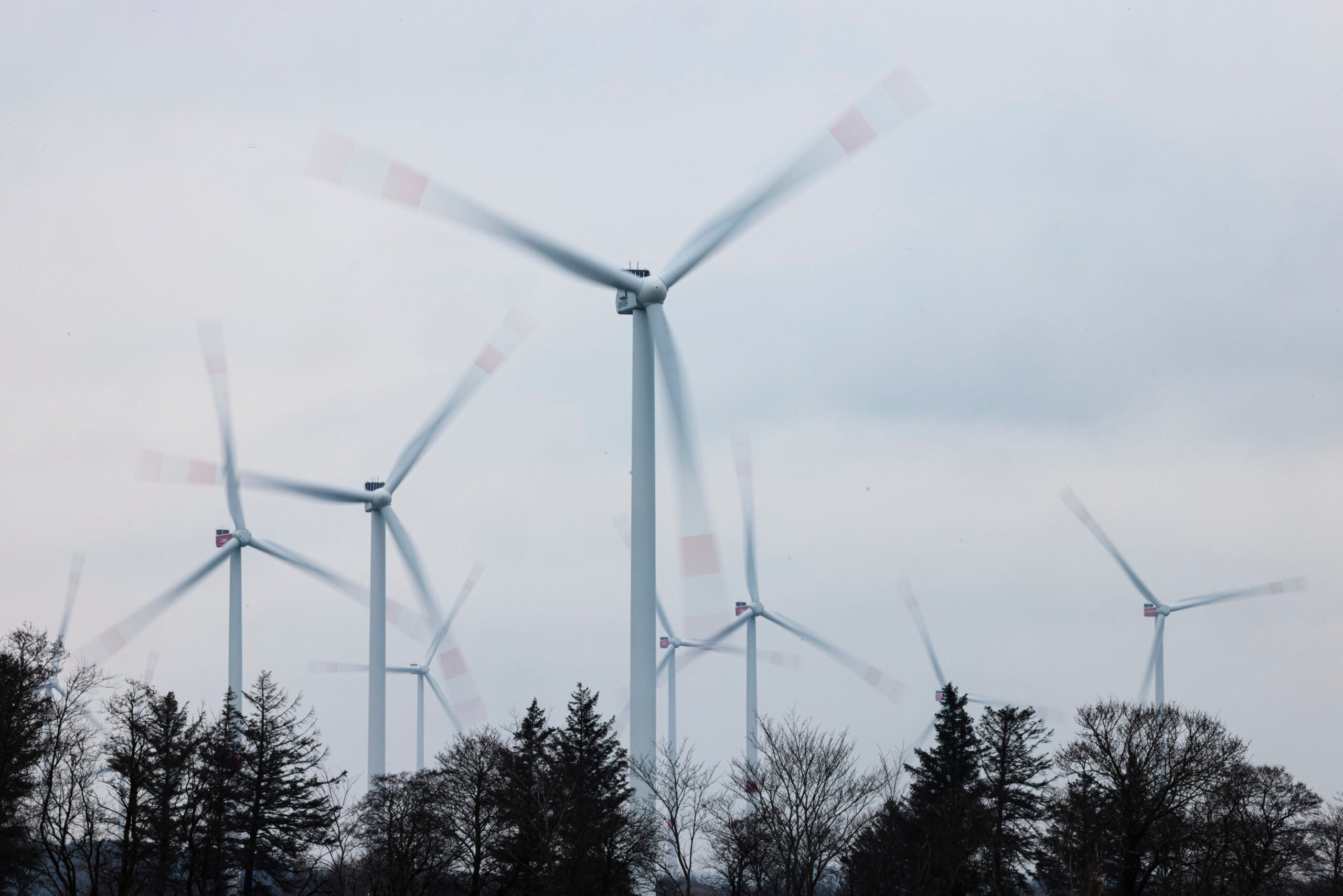The city of Green Bay is joining a statewide effort to inform Wisconsinites about incentives in the federal Inflation Reduction Act that’ll help them save money and protect the environment.
Mayor Eric Genrich, former Lt. Gov. Mandela Barnes and Wisconsin Conservation Voters on Tuesday announced a door-to-door canvassing campaign to help local residents, businesses and nonprofits leverage opportunities in the federal law.
Barnes’ nonprofit Forward Together Wisconsin and Wisconsin Conservation Voters previously worked on a similar outreach effort in the Madison and Milwaukee areas, where they knocked on roughly 76,000 doors.
News with a little more humanity
WPR’s “Wisconsin Today” newsletter keeps you connected to the state you love without feeling overwhelmed. No paywall. No agenda. No corporate filter.
Green Bay resident Seth Hoffmeister, deputy director for Wisconsin Conservation Voters, said they hope to build on that effort by reaching more than 20,000 households in Green Bay.
Beyond Titletown, he said the effort is also expanding to more of Dane County and to La Crosse. In total, they hope to knock on an additional 240,000 doors across the state by the end of July.
“Through all of these conversations, we’re able to connect people with home or apartment upgrades that can make their daily lives more comfortable, help them save money on upfront costs of already planned purchases, reduce monthly utility bills and protect our environment for future generations,” Hoffmeister said.
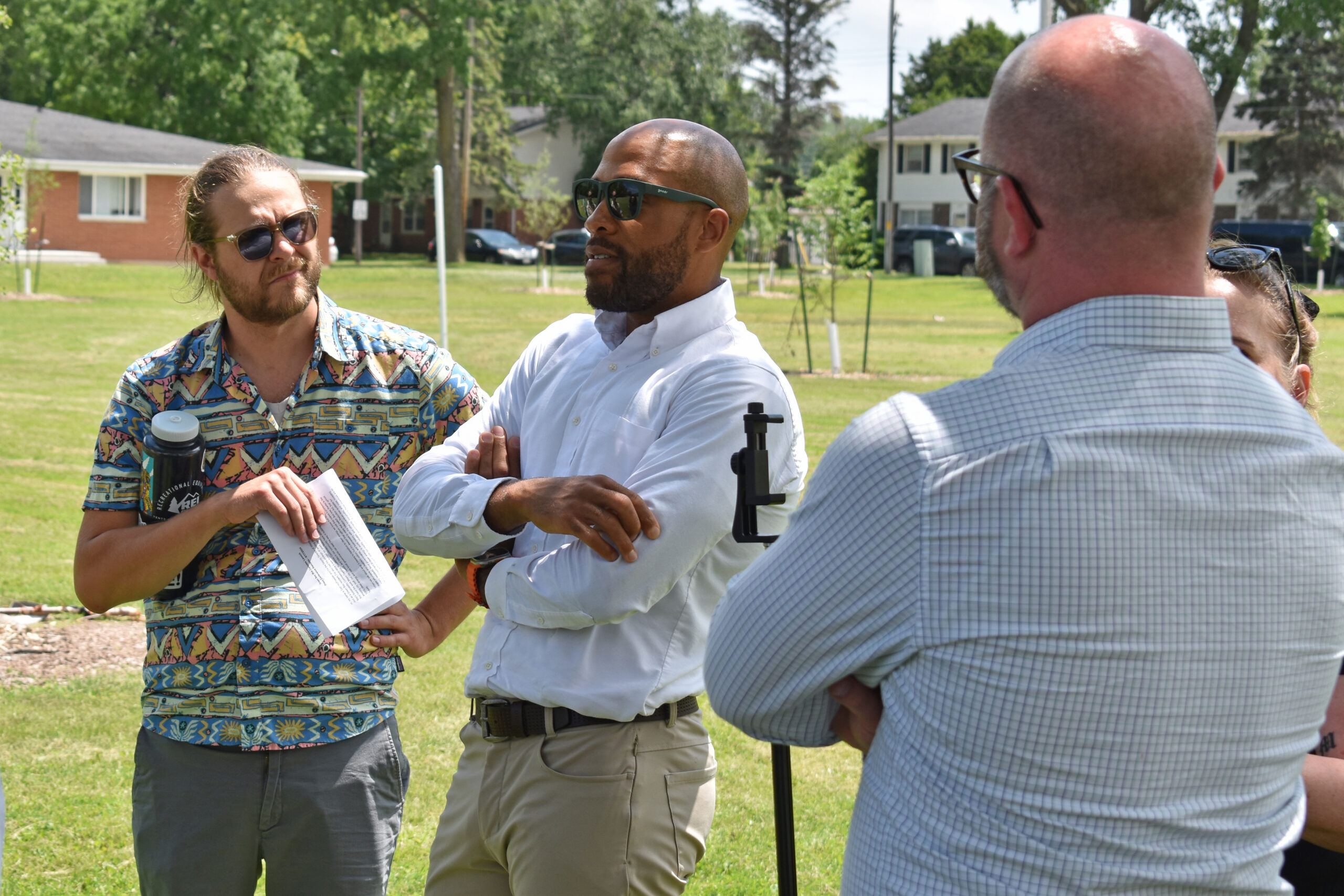
The Inflation Reduction Act, or IRA, was signed into law by President Joe Biden in 2022 and makes investments toward combating climate change.
The legislation includes provisions offering tax credits to businesses and homeowners for investments in things like rooftop solar panels, electric vehicles or energy efficiency home upgrades. Tax-exempt entities, like nonprofits and local governments, are also eligible for direct payments instead of tax credits for those investments.
In addition to tax credits, Wisconsin households will be eligible for rebates on energy efficiency upgrades in single- and multi-family buildings. Higher rebates will be awarded to households with incomes below 80 percent of an area’s median income. Those rebate programs are expected to launch later this year.
Genrich said the canvassing effort is part of the city’s commitment to becoming carbon neutral by 2050.
The mayor said the city adopted a comprehensive energy plan in late 2023, and the Inflation Reduction Act will play a key role in meeting the goals laid out in that plan. He said the city is already eyeing ways to make the most of the incentives in the legislation.
“One of the things that we’re going to be rolling out here within the next couple of weeks are some EVs at the police department,” he said. “We also have our first EV bus that, hopefully, will be online (in the) first quarter next year.”
Beyond the city’s potential investments, Barnes said the canvassing effort is important because most Wisconsinites are not aware of the provisions in the IRA that could help them save money on major home purchases.
He said each of the canvassers will leave pamphlets at homes that provide information on the opportunities available and include a QR code that’ll take users to a website with more information.
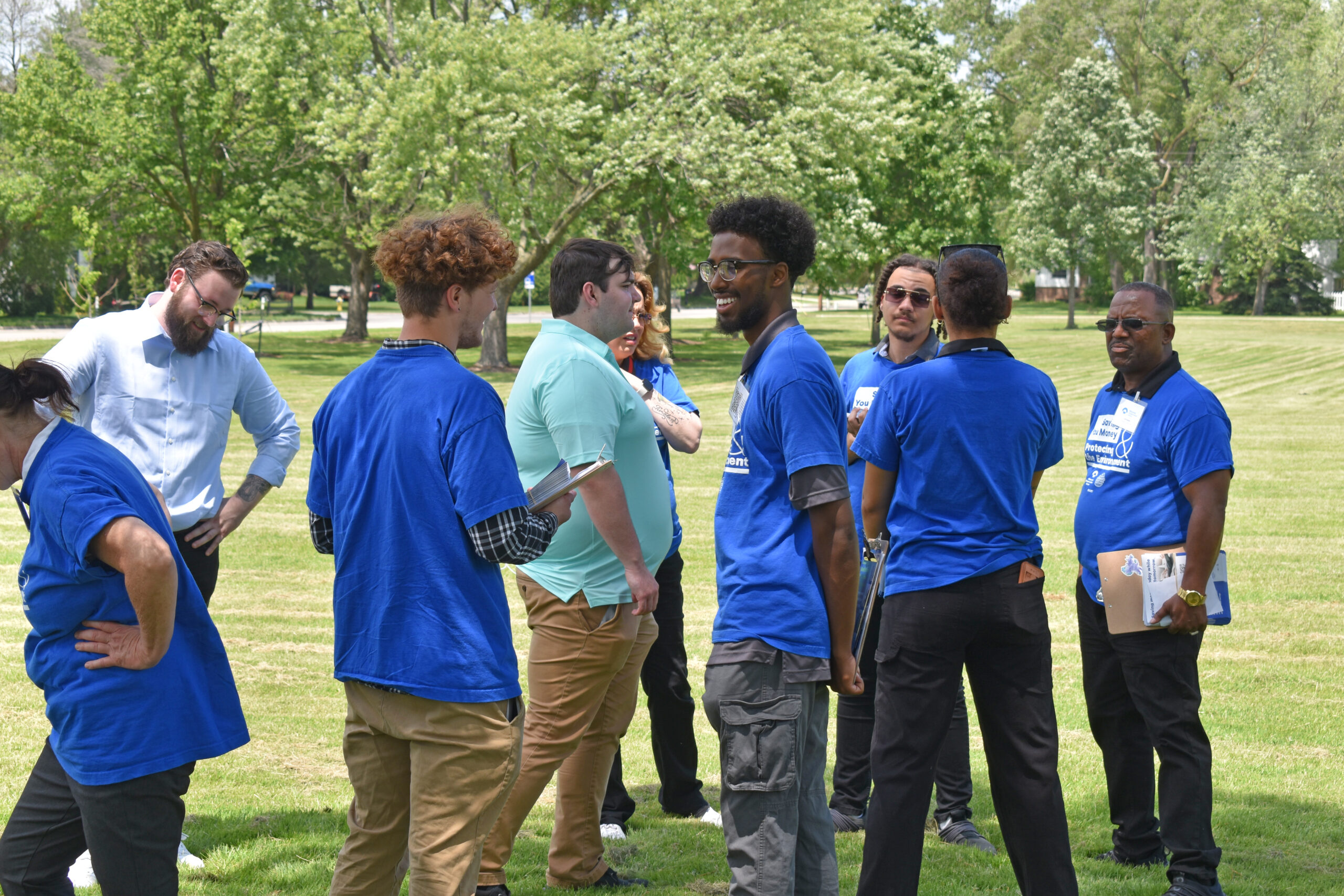
“For people who’ve been thinking about this a long time wanting to do this, this helps priming the pump,” Barnes said. “It helps them realize that it’s not going to be as much of an upfront cost as it would have been prior to the Inflation Reduction Act.”
Hoffmeister added that the IRA gives Wisconsinites the opportunity to take a more active role in the clean energy transition in the Badger State.
“While it might sometimes feel daunting to face a challenge like transitioning to 100 percent clean energy, we’re seeing firsthand that when you break it down to person-to-person conversations, like the ones we’re having at the door, we can all be a part of the solution,” he said.
Wisconsin Public Radio, © Copyright 2025, Board of Regents of the University of Wisconsin System and Wisconsin Educational Communications Board.

